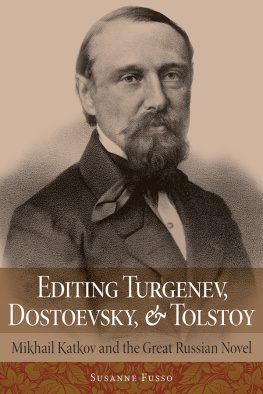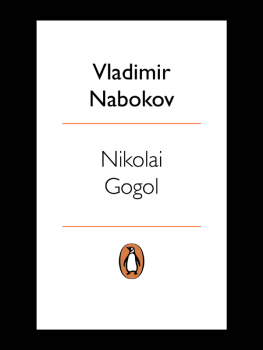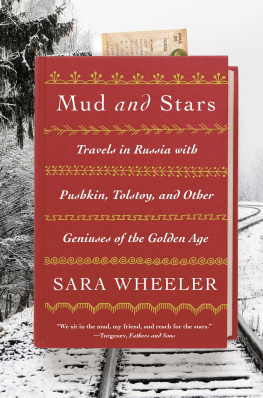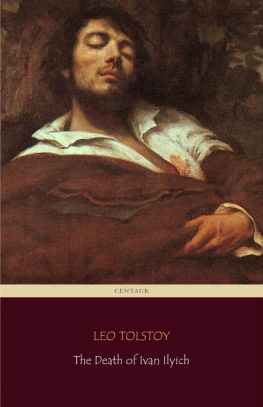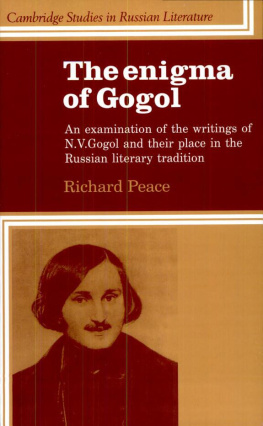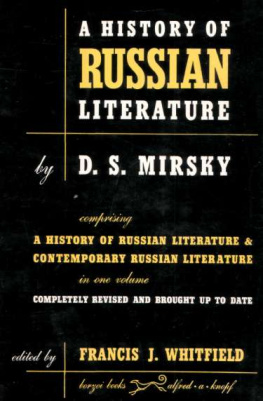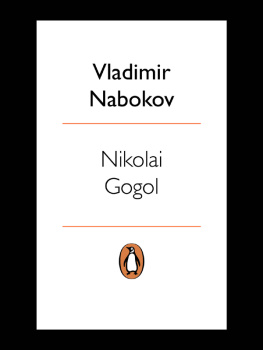LECTURE I.

INTRODUCTORY.
Table of Contents
1. I have chosen the four writers mentioned on the programme not so much because they are the four greatest names of Russian literature as because they best represent the point of view from which these lectures are to be delivered. For what Nature is to God, that is Literature unto the Soul. God ever strives to reveal himself in Nature through its manifold changes and developing forms. And the human soul ever strives to reveal itself in literature through its manifold changes and developing forms. But while to see the goal of the never resting creativeness of God is not yet given unto man, it is given unto mortal eyes to behold the promised land from Pisgah, toward which the soul ever strives, and which, let us hope, it ever is approaching. For the soul ever strives onward and upward, and whether the struggle be called progress of species, looking for the ideal, or union with God, the thing is the same. It is of this journey of the soul heavenward that literature is the record, and the various chases of literary development in every nation are only so many mile-posts on the road.
2. In its childhood the human soul only exists; it can hardly yet be said to live; but soon it becomes conscious of its existence, and the first cry it utters is that of joy. Youth is ever cheerful, and in its cheer it sings. Youth sings to the stars in the sky, to the pale moon and to the red moon, to the maiden's cheeks and to the maiden's fan; youth sings to the flower, to the bee, to the bird, and even to the mouse. And what is true of the individual is equally true of the race. The earliest voices in the literature of any nation are those of song. In Greece Homer, like his favorite cicada, chirps right gladly, and in England Chaucer and Shakespeare are first of all bards. In France and Germany it is even difficult to find the separate prominent singers, for there the whole nation, whatever hath articulate voice in it, takes to singing with its troubadours and minnesingers. In its earliest stages then the soul sings, not in plaintive regretful strain, but birdlike from an overflowing breast, with rejoicings and with mirth.
3. But the time soon arrives when the soul recognizes that life means something more than mere existence, something more than mere enjoyment, something more even than mere happiness; the time soon arrives when the soul recognizes that by the side of the Prince of Light there also dwells the Prince of Darkness; that not only is there in the Universe a great God the Good, but also a great Devil the Evil; and with the impetuosity and impassionateness of youth it gives itself up to lamentation, to indignation. The heart of the poet, the singer, is now filled with woe; he departs and leaves behind him only the lamenter, the reproacher, the rebel. Job succeeds Miriam, schylus succeeds Homer, Racine and Corneille take the place of the troubadours, and Byron succeeds Shakespeare. This is the stage of fruitless lamentation and protest.
4. But unlike the bear in winter, the soul cannot feed long on its own flesh, and the time soon comes when it beholds the wasteful restlessness of mere indignation, of mere protest. It sees that to overcome the ill it must go forth manfully and do battle, and attack the enemy in his most vulnerable spots, instead of fruitlessly railing against him. Literature then becomes full of purpose; becomes aggressive, attacks now the throne, now the church, now the law, now the institution, now the person. Tragedy is followed by comedy, sentiment by satire; schylus is followed by Aristophanes, Horace is followed by Juvenal and Martial; Racine is followed by Voltaire, and Byron by Dickens. This is the stage of war.
5. But neither is it given unto the soul to remain long in hatred, for hatred is the child of Darkness; the goal of the soul is Love, since Love is the child of Light. And the spirit of man soon discovers that the powers of darkness are not to be conquered by violence, by battle against the men possessed of them, but by faith in the final triumph of the Good, by submission to Fate, by endurance of what can be borne, by reverence towards God, and lastly by mercy towards men. The soul thus discovers its true haven; it lays down the sword; its voice calls no longer to strife, but to peace; it now inspires and uplifts, and Greek literature ends with Socrates and Plato, Rome with Marcus Aurelius and Seneca, England with Carlyle and Ruskin, America with Emerson, and Germany with Goethe. Letters indeed go on in England, in America, and in Germany, but the cycle is completed; and higher than Plato, Marcus Aurelius, Goethe, Emerson, Carlyle, and Ruskin, the soul need not seek to rise. Whatever comes henceforth can add naught new to its life; the tones may indeed vary, but the strain must remain the same.
6. The eye of the body never indeed beholds the perfect circle; however accurately the hand draw, the magnifying glass quickly reveals zigs and zags in the outline. Only unto the eye of the spirit it is given to behold things in their perfection, and the soul knows that there does exist a perfect circle, magnifying glass or no magnifying glass. So history shows indeed many an irregularity in the law just laid down for the development of the soul, but the law is still there in its perfection, and Russian literature furnishes the best illustration of this law. Every literature has to go through these four stages, but nowhere have they been passed with such regularity as in Russia. Accordingly we have in due order of time Pushkin the singer, Gogol the protester, Turgenef the warrior, who on the very threshold of his literary career vows the oath of a Hannibal not to rest until serfdom and autocracy are abolished, and lastly we have Tolstoy the preacher, the inspirer.
7. How this law has operated on Russian soil, in Russian hearts, is the purpose of these lectures to show. For while the laws of the spirit are ever the same in essence, the character of their manifestation varies with time and place, just as in Nature the same force appears in the firmament as gravitation when it binds star unto star, as attraction when it binds in the molecule atom unto atom, and in man as love when it binds heart unto heart. The phenomena therefore, natural to all literature, we shall also find here, but modified by the peculiar character of the people.




 INTRODUCTORY.
INTRODUCTORY.
